
This website supports three options for navigating through the comic: horizontal scrollbar, left and right keyboard arrows, and dragging the comic.
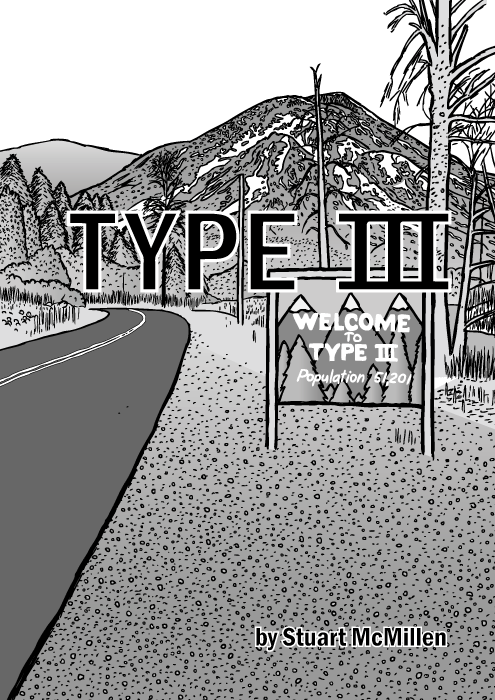
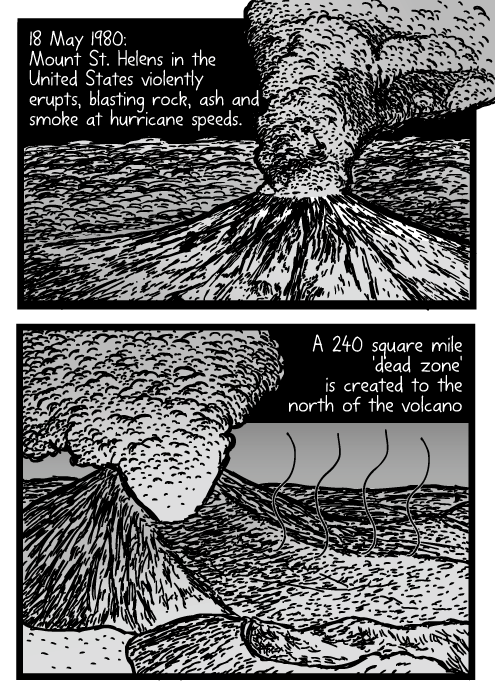
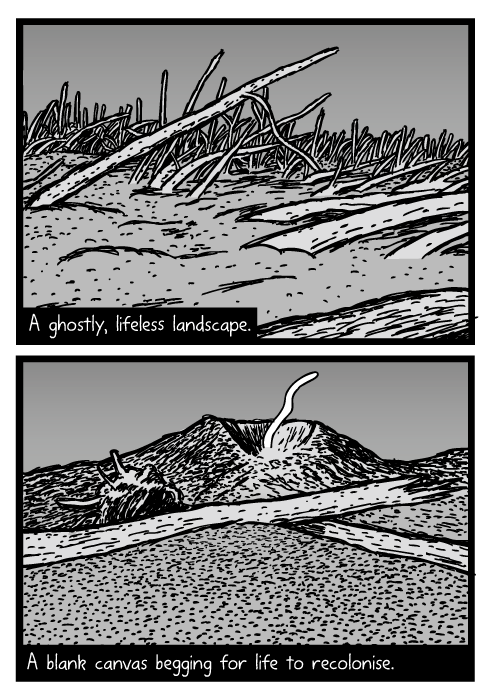
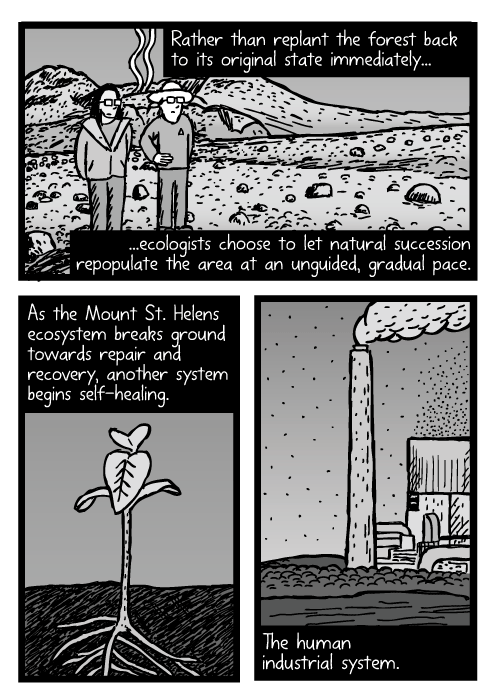
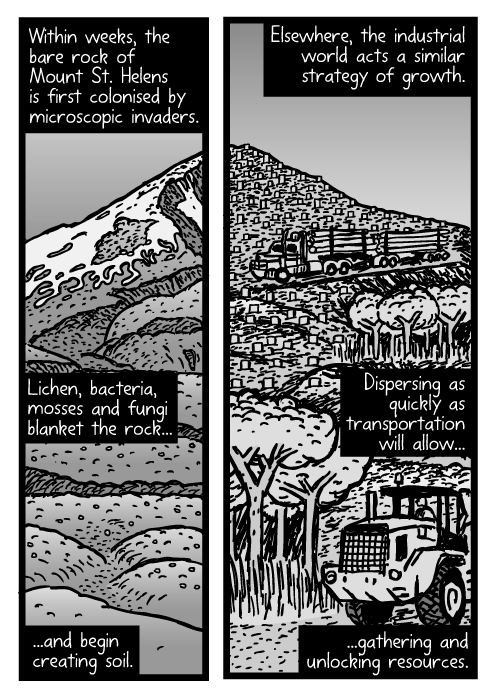
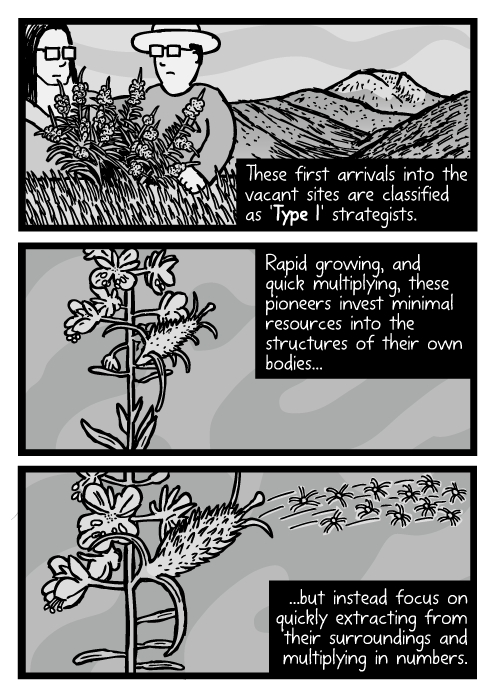
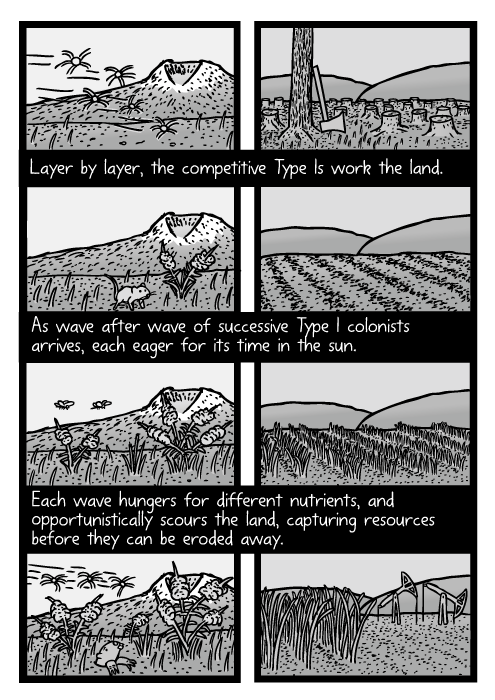
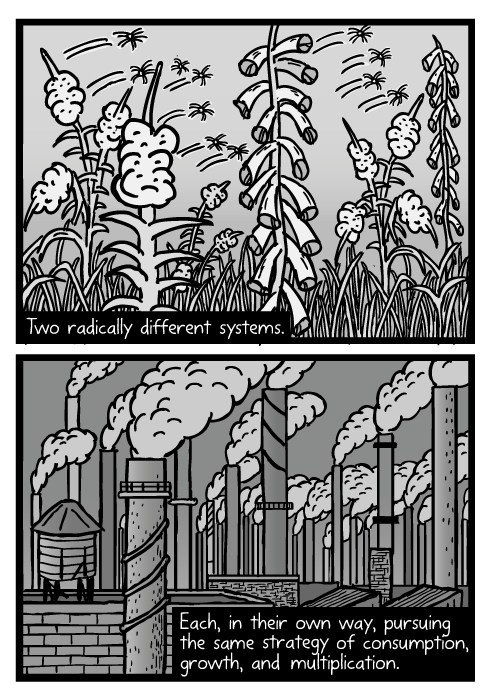
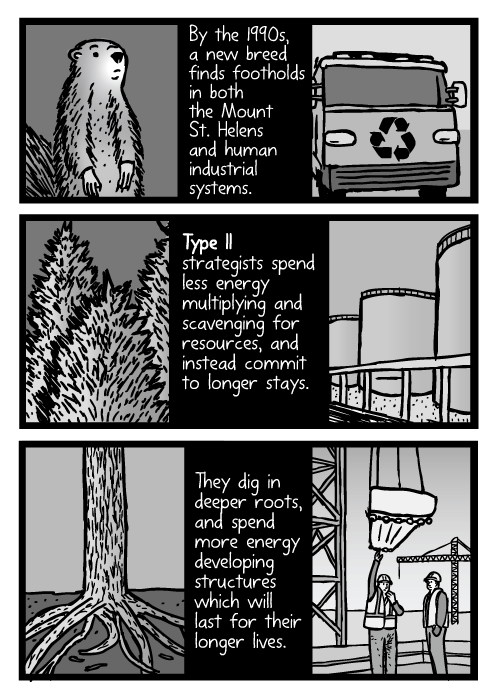
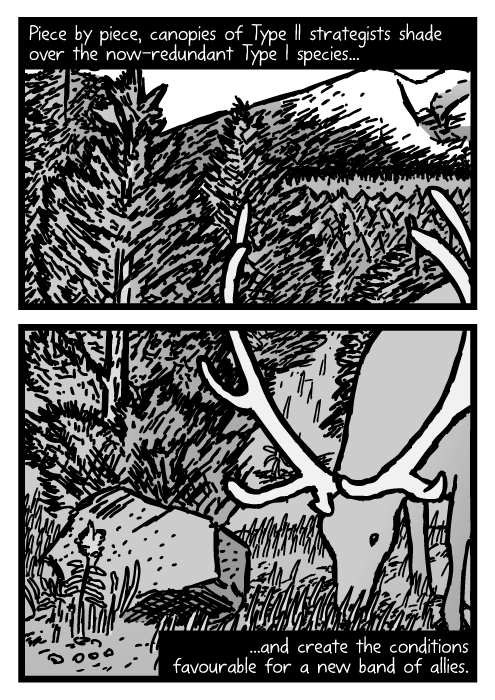
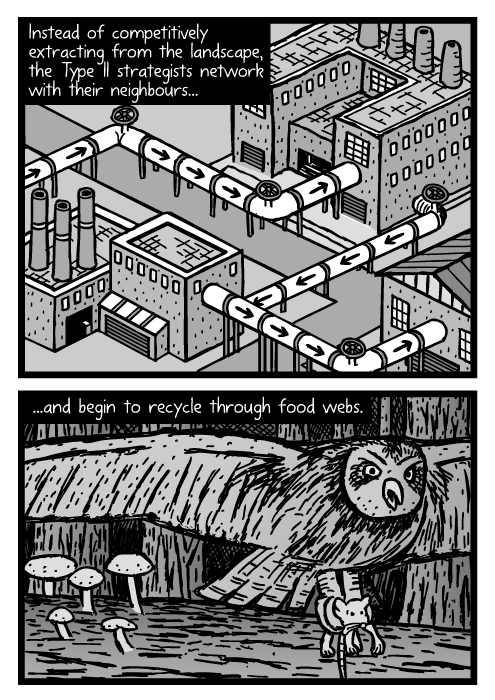
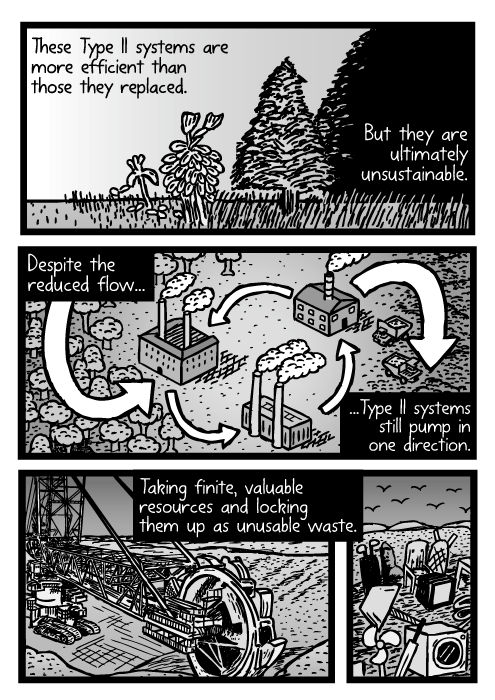
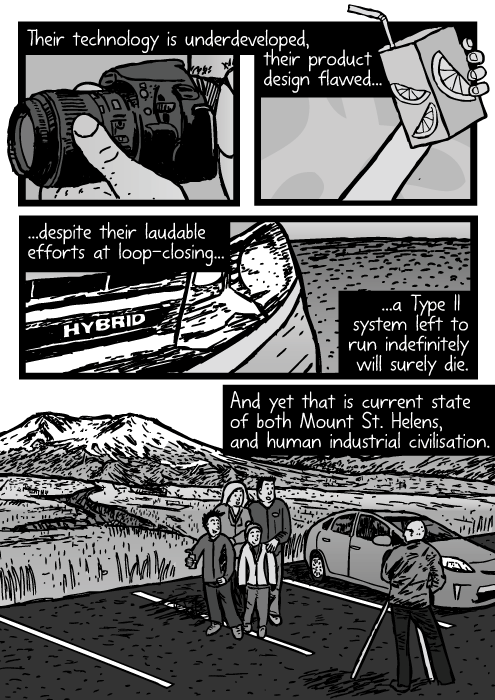
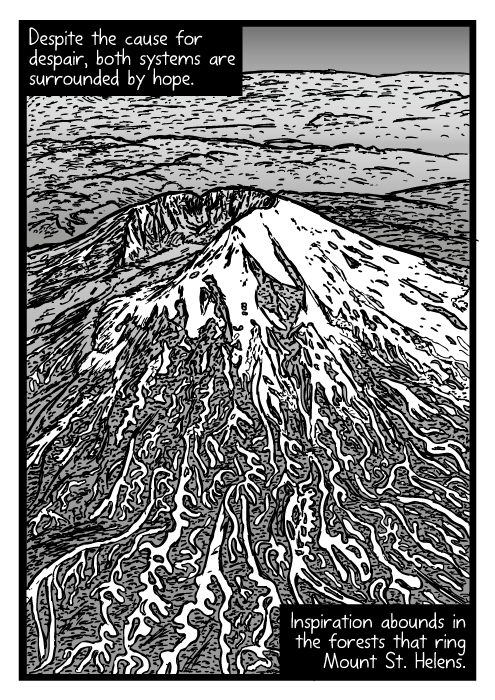
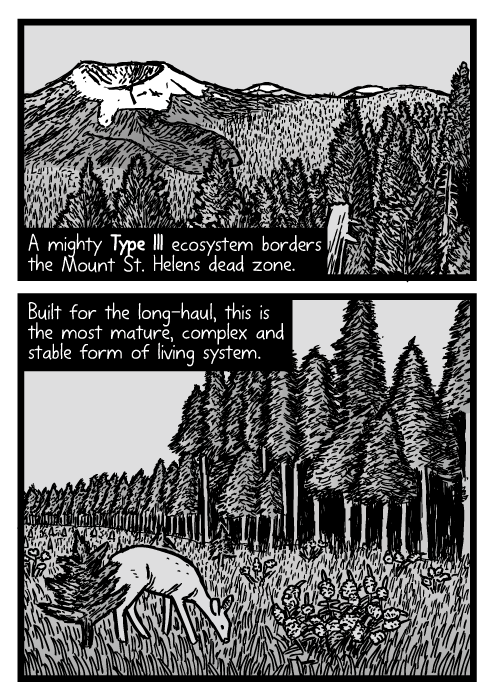
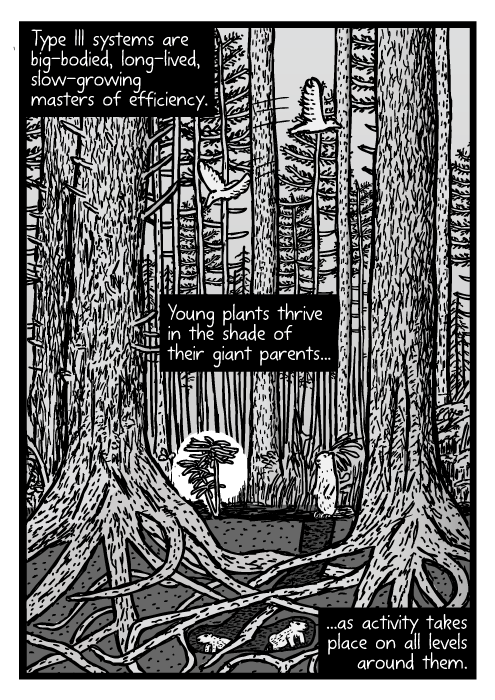
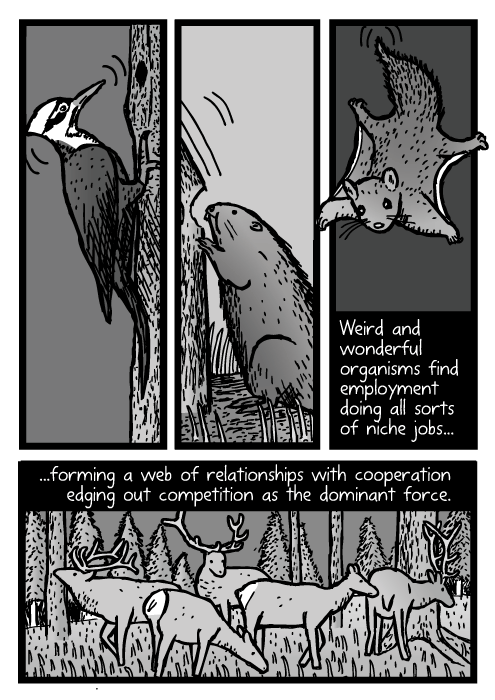
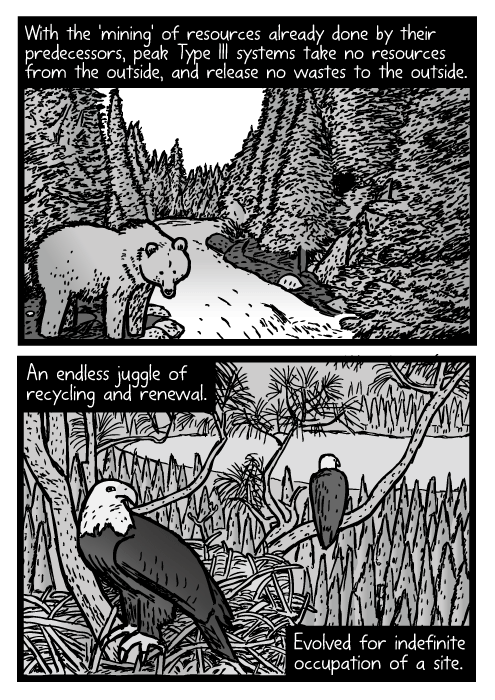
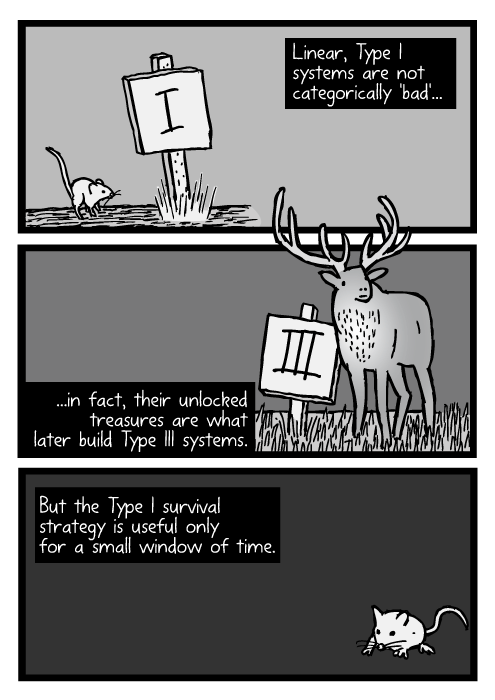
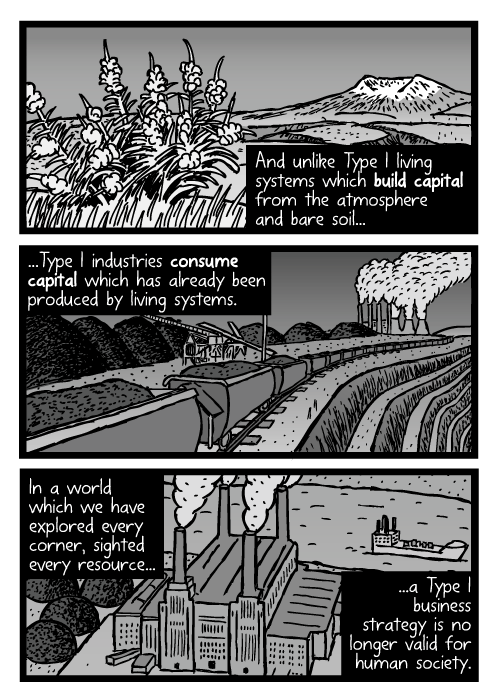
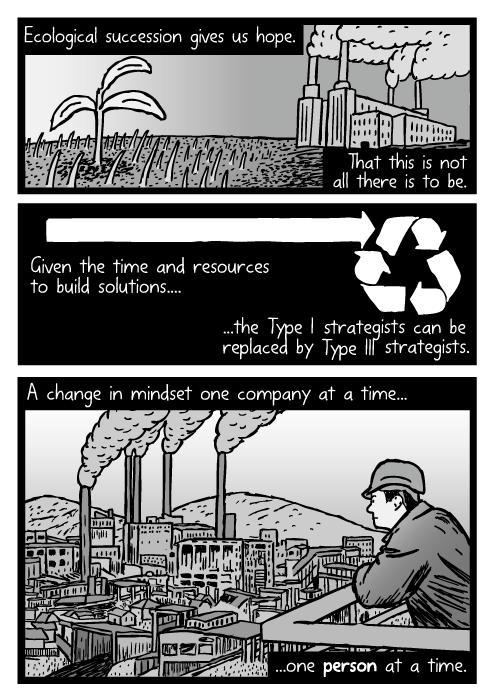
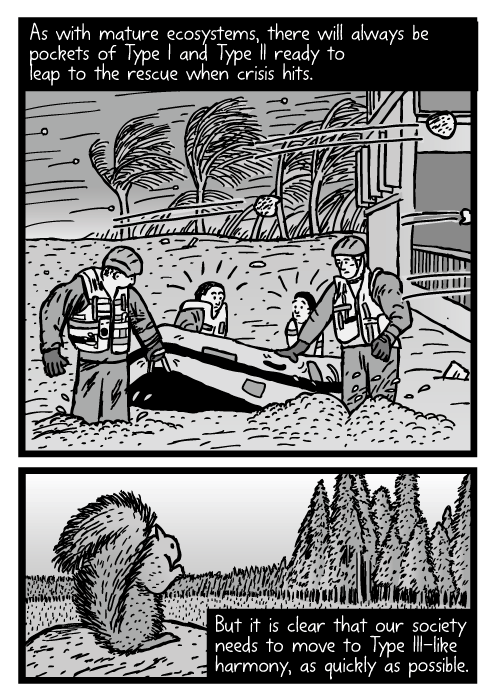
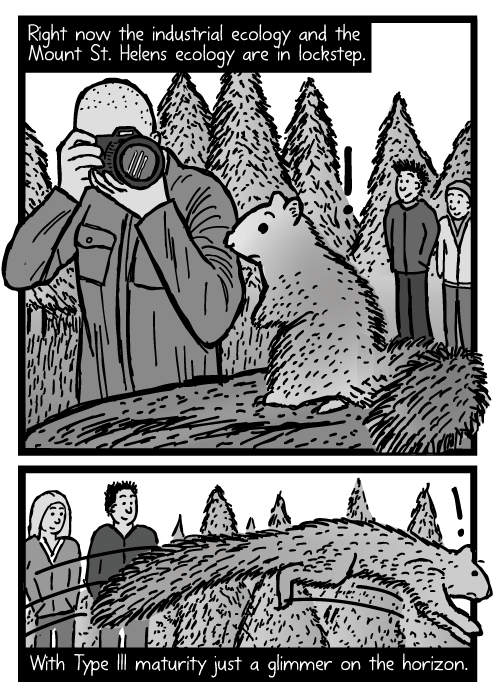
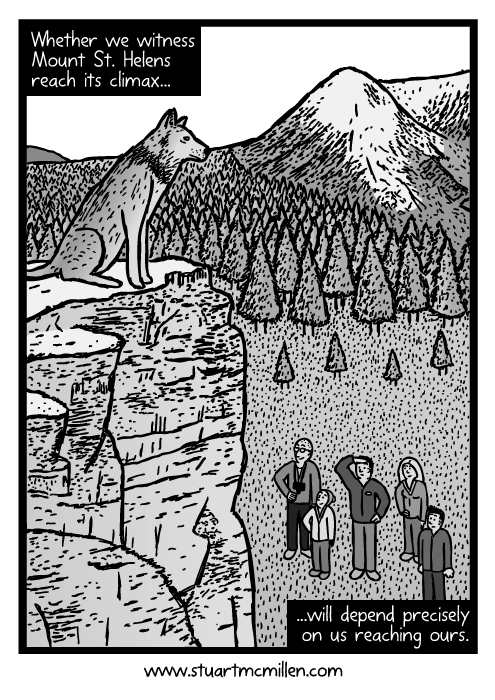
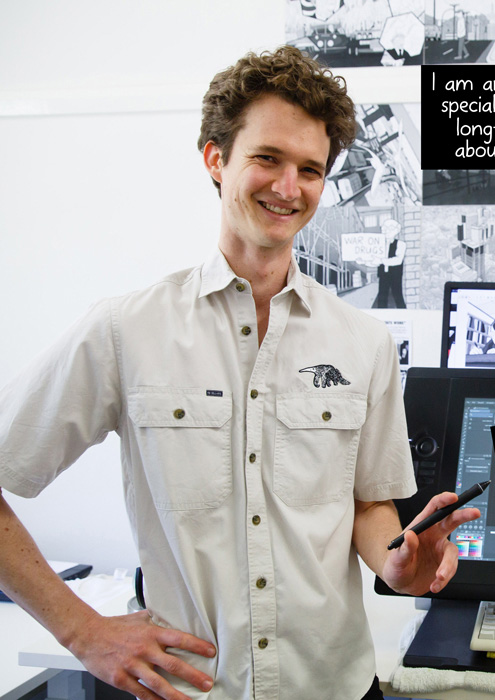
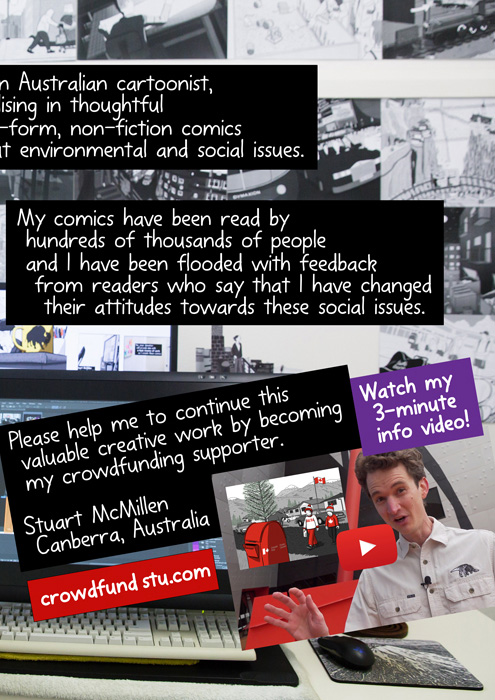
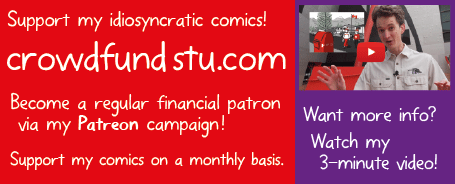
A comic about the Mount St. Helens ecosystem, and the human industrial system. A graphical look at industrial ecology and ‘green industry’.
Read my essay Type III reflections: the ‘making of’ to learn about my process for making this comic. I also discuss my research into the Mount St. Helens ecosystem recovery, as well as the concepts of ‘industrial ecology’ and ‘Type III industrial systems’ that I mentioned in the comic.


Trees build themselves from the carbon, hydrogen and oxygen of thin air. Can we learn to copy their engineering secrets?

What happens when you introduce 29 reindeer to an isolated island of untouched natural resources?
Comments
Mark
great stuff
Carmen
Interesting parallel between the natural and industrial system! :)I'd just like to add that the Type III states in natural systems are not designed for indefinite occupation of land but are actually part of a cyclical process of succession over the longer term. As the Type III state is the most fragile stage of the cycle and takes the longest amount to time to form, people tend to place greater value on Type III environments. However, overvaluation of the Type III stage versus the importance of natural timescales for succession between each stage have led to human interference to artificially maintain the Type III state of some natural systems with negative environmental consequences (e.g. the 'smokey bear' policy in the USA - http://www.personal.psu.edu/agl/Law%20review%20fire-oak.pdf). A key problem in natural systems is, therefore, not the need to maintain Type III states indefinitely but the blockages that human activities are putting in place that prevent the transition from Type II to Type III states.
Bruce
Hope, vision, and a map charting a direction to sustainable human being.Thank you Stuart.
kloe
I am a huge fan of your work, they inspire me so much. I love the way you interweave scientific facts with the human society, it is truly amazing.
The Great Disruption (moving to Canberra) - Stuart McMillen blog
[...] has been to communicate issues which are on the fringes of popular understanding. Examples include the linear nature of our economy, the efficient way nature builds itself, and the dangers of unchecked [...]
Gareth Kane
Brilliant - as an industrial ecologist, I love this!
Thin Air reflections - Stuart McMillen blog
[...] its sister comic, Type III, Thin Air ends without a specific ‘message’ or conclusion. The simple reason for this [...]
Type III reflections - Stuart McMillen blog
[...] Type III is about the other story of Mount St. Helens. Usually seen only as an force of destruction, I tried to show the flip side of the coin. In the comic, I recast the iconic volcano as a shining example of nature’s versatility, creativity and resilience. [...]
Jao
Awesome! Reppin' work man ill add your site to my news feed :)
Mickey
Excellent Comic, I will do some advertisement in a social network ;)
greg
great work stu, i'd love to see this as a backdrop in the council marquee for the next greenheart fair... make it happen stu, make it happengreg
Jessie Henshaw
Thanks for the great depiction of natural succession, as a path of ecosystem learning. There's another key piece of science for it, that can help guide a Type II to Type III transition for an economy. It's that the resources used in *every phase*, for building the next, is the system's own surplus products. For economy's that's its $savings accounts people accumulate, that are used to pay for the resources invested in building the next form of the system, its creative cycle. Today $savings are managed only by maximizing the rate of growing $savings, and as a Type III system their purpose of $savings would change from multiplying themselves to securing the economy's health, and relationships with the other communities it relies on. So, $savings would stop being invested for wealth as that undermines the whole, and is then largely used like endowments, for other values needed for securing the whole.A full model is: "Adopt natural system principles to keep economies profitable at their limits" http://www.synapse9.com/signals/2012/05/10/natural-principles-to-stay-profitable-at-limits/
Melissa Sterry
Absolutely brilliant! I will be citing this work in my research for The Bionic City - http://www.scoop.it/t/the-bionic-city - as this comic strip has succinctly summarized one of the key principles my hypothesis embeds. Exciting work Stuart, it's made my day! Will ping it to a few folks I think will be excited about it too, inc the Earth2Hub.com crew.
Paul
The ecological portions of this were painful to read. That view of succession is considered quaint and outdated by much of the scientific community.
Ted
This is the coolest comic I've seen. Just a great look at ecosytems that either we create by design or by default. Inspirational, beautiful and directional.
The best comic about industry and ecosystems you’ll ever read | Grist
[...] comic form they become accessible and charming (I like the dismayed squirrel on page 22). I promise reading the comic will be more fun than reading my last paragraph. [...]
Zac
Your style reminds me of Scott McCloud, very direct and and interesting. Keep up the good work, Stuart!
Sam
Nice analogy there Stuart -really liked this one; it's a complex topic for a cartoon to tackle! Interesting to muse on what a 'Type 3' *modern* human civilisation would look like... actually...I think we have already been a type 3, the Australian aborigines' traditional way of life would probably fit the bill, and I'm thinking back to the 'conserver' society my grandmother inhabited, before the advent of the mass-production and consumption we have nowadays -nothing was wasted or thrown out, everything was conserved and reused because to replace it was unaffordable. We can still go back to that way of living if there is the will...but our economies are dependent on the cycle of consumption, and 'consumer confidence'... what would happen if we stopped spending, consuming (and wasting, prompting the need for more consumtion)?. Recession! Let us know what a type 3 modern human civilisation looks like!